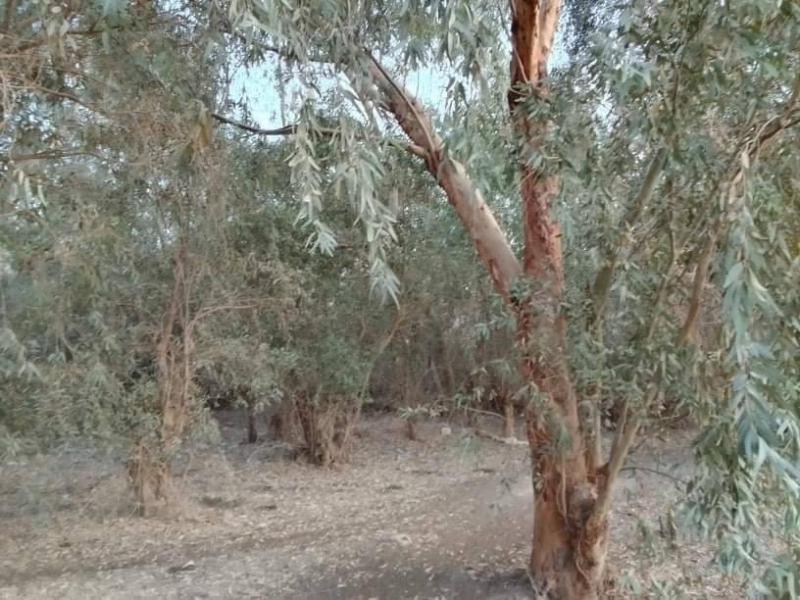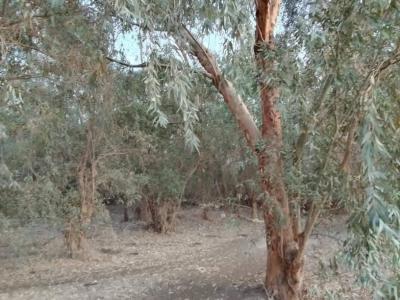Located 22 km east of Diyala province, the ruins known by some as the "Silent Forest," or locally as the "Kanaan Forest," were established nearly half a century ago, covering an area of more than 7,000 dunams as part of the national project "Green Belts in Iraqi Cities." However, after 2003, it fell into oblivion, despite being an important factor in supporting the environment, as droughts and fires consumed it, greatly reducing its area in recent years.
Mazhar Al-Abidi, a retired agricultural engineer, explained in an interview with "Baghdad Today" that "Kanaan Forest is the largest forest currently existing in eastern Iraq, especially after the eradication of three similar forests, leaving only this one." He noted that "its somewhat remote location from residential areas may have played a role in preventing meddling for more than four decades."
He added that "Kanaan Forest has remained resilient for many years despite neglect, drought, and fires. It could have been invested in to become one of the most beautiful tourist areas in Diyala, but unfortunately, it is neglected in every aspect."
Member of the Diyala Council, Aws Al-Mahdawi, pointed out that "the file of reviving Diyala's forests will be reconsidered, especially with the climate changes and the loss of more than 30% of green belts after 2003 due to land clearing, drought, agricultural pests, and security disturbances." He stated that "preserving the forests and ensuring their sustainability will be part of a systematic plan in the upcoming period, through the priorities of the local government that we hope will be formed soon."
Othman Ali, a member of the Beekeepers Association in Diyala, confirmed that "Kanaan Forest can be utilized for beekeeping and honey production because it offers an ideal environment with many eucalyptus trees," adding that "the forest is neglected and suffers from severe drought with no direct care, despite being the last surviving forest for almost 50 years."
A tourism company owner was surprised when he saw it for the first time, saying, "70% of the people in Diyala do not know its location, and 99% have never set foot in it, despite its beauty and vastness." He pointed out that "Baquba is suffocated due to the lack of green areas following a wave of land clearing that began in 2007 and is still ongoing," affirming that "Kanaan Forest can easily transform into the Zawra of Diyala if some basic services are provided, along with preserving what remains of its trees that are suffering from drought and recurring fires."




